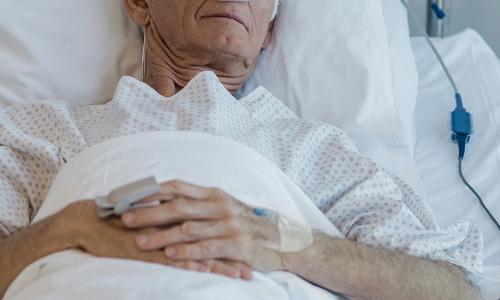LETTER | Amidst Covid-19, cancer care cannot be delayed
LETTER | In the year 2020 alone, the number of new cancer cases reported in Malaysia was 48,639 and the number of people living with cancer (5-year) was a whopping 128,018. Presently, the top three most common cancers among Malaysian males are colorectal, lung and prostate cancers whereas for females, they comprise breast, colorectal and cervical cancers.
Central to this discussion is that the pandemic has led to the reallocation of healthcare resources to cater for the influx in Covid-19-related hospitalisations. Particularly, during the first movement control order (MCO), cancer-screening services were limited, cancer surgeries were postponed, and clinical visits and imaging appointments were deferred.
While these measures were taken to ensure that we had enough medical personnel, hospital beds (ICU and non-ICU) and personal protective equipment (PPE) to accommodate the high number of Covid-19 admissions, they resulted in widespread disruptions to cancer care service delivery in the nation, especially so given that some tertiary hospitals were also hybrid Covid-19 hospitals.
Our cancer survivors were also torn between having to leave their homes to attend hospital appointments or postponing their hospital visits to a later date in fear of exposing themselves to the coronavirus.
Now that MCO 2.0 is back, we would like to remind the Malaysians at large that cancer patients may again be facing similar problems and that it is no more ethical to let them (and also patients with other chronic diseases) suffer due to the pandemic. While fighting the invisible virus remains the utmost priority currently, cancer care cannot be delayed. Here, we would like to propose several measures that can be taken to maintain the continuity of cancer care in Malaysia.
General public:
- Anyone with new cancer symptoms (lumps, pain at a specific area, unexplained bleeding) should seek medical advice promptly. Do not brush off any persistent symptoms.
Cancer survivors:
- Check with respective clinics if your appointment has been rescheduled due to MCO 2.0.
- Take note of your appointment time slots so that physical distancing can be maintained in the waiting area of the healthcare facility.
- Obtain travel permit if your healthcare facility is more than a 10 km radius from your home. Take along your hospital appointment cards as proof to the police station.
- If you are receiving chemotherapy, radiotherapy or any other cancer therapy, you should be compliant to the treatment. Discuss any concerns with your doctor.
- Those with personal medical insurance and wish to fast-track their treatment may want to explore treatment options at private hospitals. This also serves as a reminder to the general public to review your existing insurance policies to ensure sufficient coverage for rainy days.
- Always practice good preventive measures – wearing a mask, physical distancing and hand hygiene whenever you leave your home. Carry a hand sanitiser and keep an extra face mask if possible.
- During this difficult time, get in touch with cancer support groups and NGOs such Makna, National Cancer Society of Malaysia (NCSM), Breast Cancer Welfare Association (BCWA), Lung Cancer Network Malaysia (LCNM), Colorectal Cancer Survivorship Society Malaysia (Corum) and Hospis Malaysia for your psychosocial needs.
Healthcare providers:
- Establish a clear referral pathway from the primary care to receiving hospitals. Communication is vital to ensure that the receiving hospitals have the capacity to take in new referrals.
- Reach out to patients who stay more than a 10 km radius from the hospital (especially tertiary referral centres). Clear communication with patients on the necessary SOPs is needed to ensure that they can continue to access treatment in a timely manner.
- Establish good coordination of cancer services between the various departments in the hospital so that patients need not go for different appointments on different days.
- Have a clear workflow for patients whose care has been deferred. Ensure a working hotline is ready for them to call if they experience symptoms.
- In the event that the hospital is unable to manage the patient in a timely manner, direct them to a nearby hospital to ensure continuity of care. This however must be done after counselling the patients adequately and ensuring that individual patients have been passed over to a dedicated team in the receiving hospital.
- Consider migrating stable patients to teleconsult services via a proper workflow.
The Covid-19 pandemic has superseded all other health-related urgencies. Cancer is a disease which can take a heavy toll on the country’s health resources, particularly advanced stage cancers which require more complicated and expensive therapies.
Therefore, cancer care, which comprises screening and early diagnosis, treatment, surveillance, supportive and palliative care, should be re-strategised according to the new norm such that continuity and quality of care are not compromised.
Teoh Soo Peng is a doctor of public health (DrPH) candidate and Nirmala Bhoo-Pathy is associate professor of epidemiology at the Dept of Social and Preventive Medicine, Faculty of Medicine, Universiti Malaya.
The views expressed here are those of the author/contributor and do not necessarily represent the views of Malaysiakini.
RM12.50 / month
- Unlimited access to award-winning journalism
- Comment and share your opinions on all our articles
- Gift interesting stories to your friends
- Tax deductable
